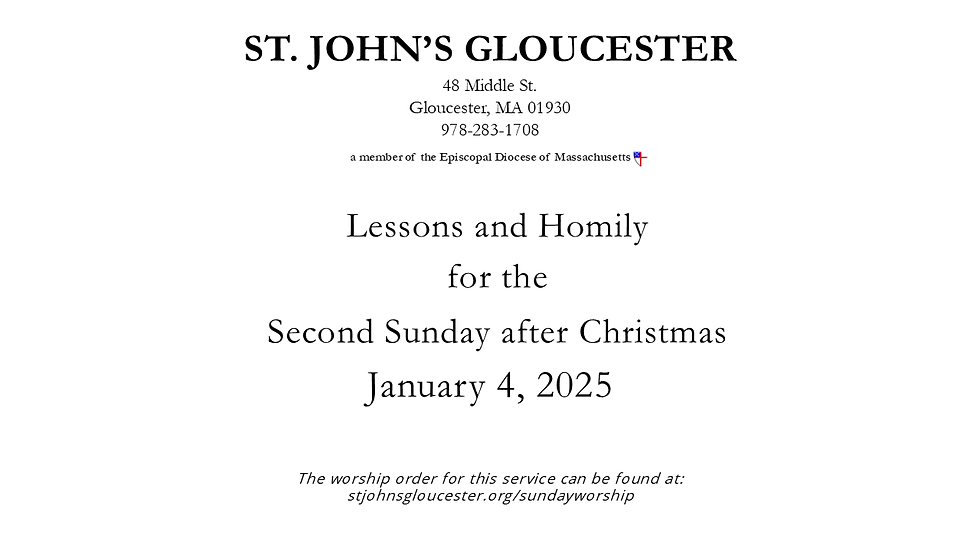Sunday, November 8, Twenty-third Sunday After Pentecost
- Nov 8, 2020
- 2 min read
Sunday, November 8 is the twenty-third Sunday after Pentecost. Find the readings here.
Dear Friends in Christ,
This week’s worship video is now available:
Morning Prayer, Rite II
Morning Prayer, Rite I
Please support our ministries, if you aren't already doing so.
Yesterday our diocese held its first all-online Convention. The experience was informative, encouraging, and uplifting, with presentations about our common life and a great message from Bishop Gates, which should be available this week on the diocesan YouTube channel. He also recorded a greeting for our worship this morning, but the real highlight today is a powerful sermon from Bishop Harris.
The weather is looking great this afternoon, so who wants to go for a stroll? Like last time, we'll meet at the bandstand in Stage Fort Park at 2 pm.
Please note that the Zoom info for our virtual coffee hour has changed. By using a passcode, we won't have to deal with the "waiting room" anymore. Hope to see lots of you at noon!
• To join on a computer, tablet, or smartphone with the Zoom app installed, click here: https://us02web.zoom.us/j/86398096400?pwd=dk5oTjNkYzNIOVl4TEExcCtiZEw2dz09
• To call in on a smartphone, tap here: +16465588656,,86398096400#,,,,,,0#,,296917#
• To join on a conventional phone, enter the Meeting ID: 863 9809 6400 and the Passcode: 296917
Here are Mark's music notes:
As you may know the book of Psalms is the hymnal of the Old Testament and the hymns in other parts of the Bible are related to Psalms but are called “Canticles.” The Canticles (and Psalms) are the cornerstone of the monastic offices and so were continued in various Reformation traditions. In our Anglican Matins & Evensong (AKA Morning & Evening Prayer) there are 2, associated with the pairs of monastic services which were combined to create them. The 1979 American BCP expanded the number of canticles and so since that time the various General Conventions have approved additional canticles that can be sung at the Daily Offices. This is good because it allows us to experience more of the biblical riches! Our first canticle is from Ecclesiasticus (AKA Sirach). The Rev. John Hooker writes in the leaders guide to WLP: [This comes] “from the Hebrew tradition of Holy Wisdom, which Greek versions of the texts refer to in the feminine as Sophia.” It may sound familiar as it has often been featured in our Advent services. It speaks to both the readings as well as to our present “interesting” times.
Our opening voluntary is by Johann Christian Heinrich Rinck. His principal teacher was one of J. S. Bach’s best students. Many organists trace their teachers back to Bach through this important musician. Actually I could also, but place little store in those endeavors. He was a prolific composer of keyboard, vocal and chamber music. The final voluntary is entitled “Via pacis,” likely in response to the Italian (now international) movement of “The Way of Peace” founded after WWII. It consists of a slowly traveling melody, almost a chant sung on a labyrinth walk.


